
政府新闻
上海启动IBLAC,聚焦人工智能和未来技术 2025-10-12
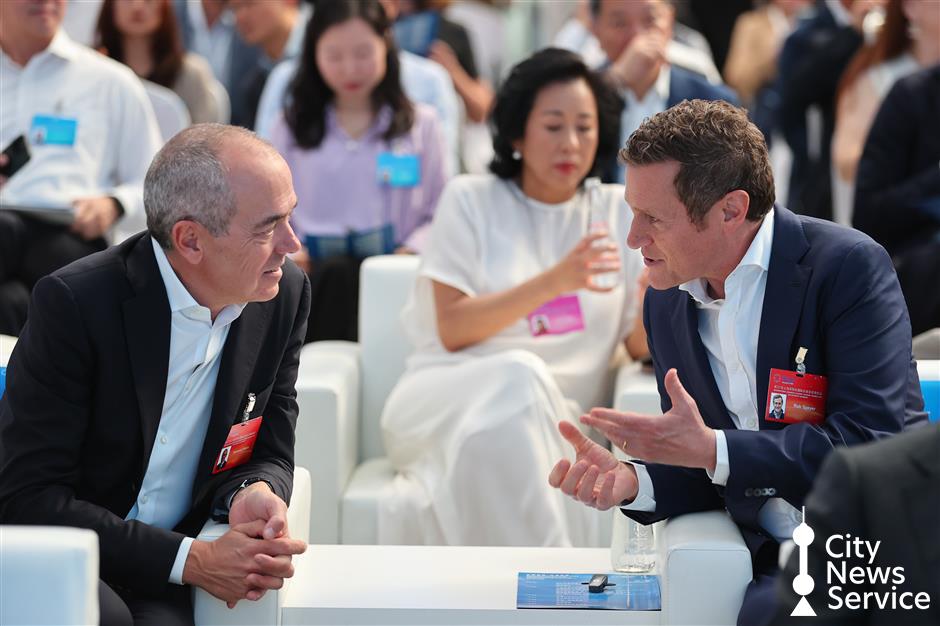
IBLAC guests attend an artificial intelligence side event at the West Bund last Sunday.
Shanghai is putting its cutting-edge artificial intelligence ecosystem center stage as it hosts this year's International Business Leaders' Advisory Council for the Mayor of Shanghai (IBLAC). The annual meeting, which opened on October 12, gathers top executives from the world's largest companies to discuss the city's business environment and advise on its future development.
For the first time, a dedicated AI session has been incorporated into the IBLAC agenda, highlighting the technology's strategic importance to the city.
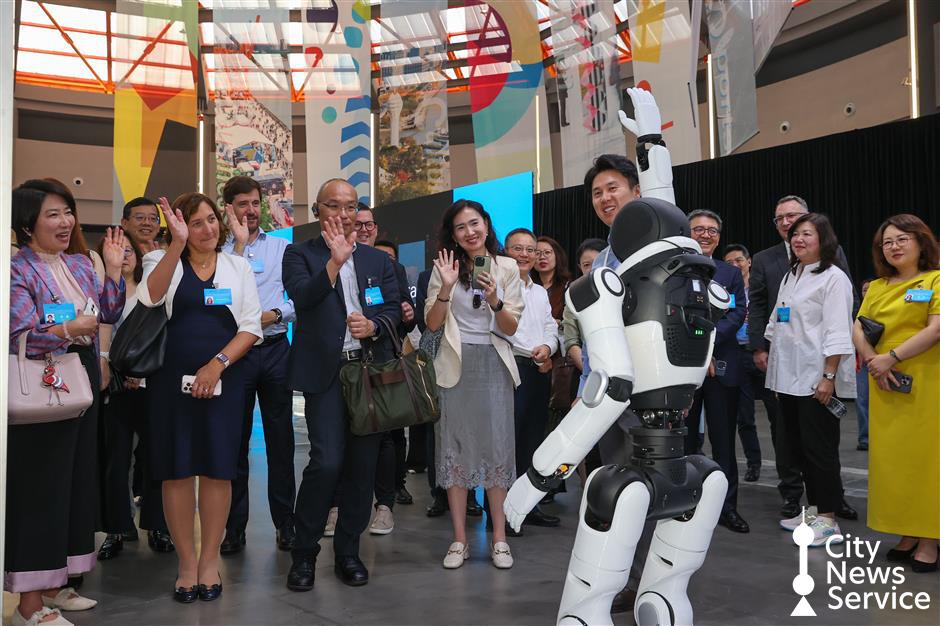
Guests interact with a robot.
Global leaders get a hands-on look at Shanghai's AI
A day before the official opening, 35 international guests, including IBLAC members and keynote speakers, attended a dynamic side event at the West Bund today. The participants immersed themselves in Shanghai's AI capabilities by visiting the booths of eight local AI-driven companies.
Attendees were greeted by the friendly wave of the AgiBot humanoid at the entrance, received refreshments from Keenon's service robots, played AI guitars and tried on smart glasses featuring real-time AI translation. These innovative glasses were developed by a startup from the Shanghai Foundation Model Innovation Center, one of China's first dedicated incubators for AI models, located in Xuhui District's West Bund.
Bruno Lannes, senior partner at Bain & Company, a top management consulting firm, praised the exhibition on-site: "Glad to see the new innovation that Shanghai brings. This is the first time there's a showroom for Shanghai-based AI-driven companies (at IBLAC). They are exciting and well-organized, and it's an amazing showcase of Shanghai's AI capabilities."
Lannes suggested the integration of AI and green transformation will be a hot topic at the Sunday meeting.
"You can't talk any business or social development without mentioning AI," added Mark J Greeven, a professor at the International Institute for Management Development (IMD), who speaks Mandarin as a long-term Shanghai resident.
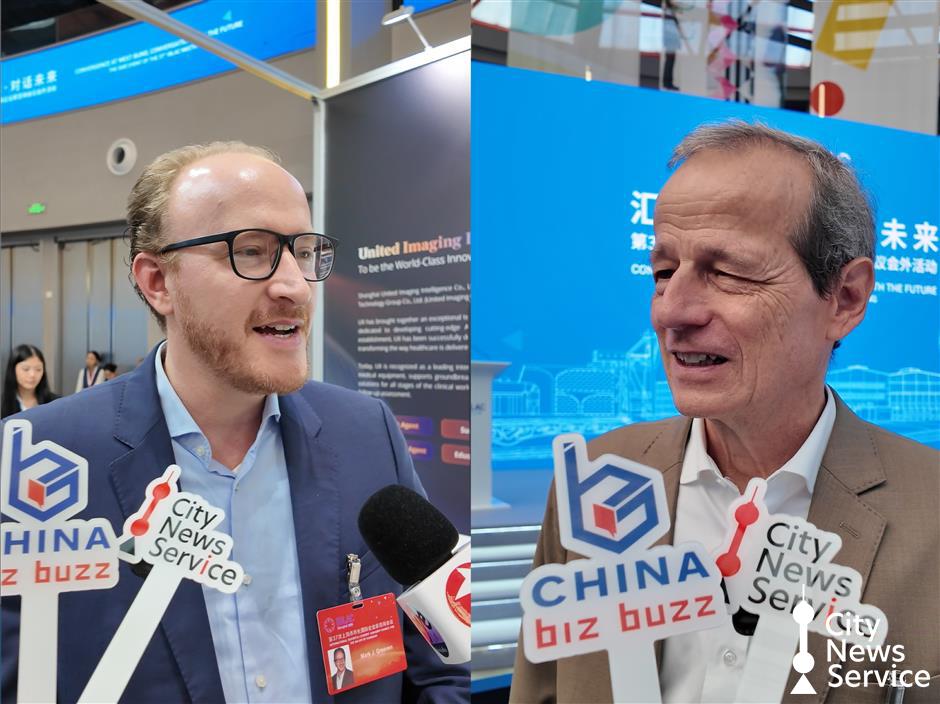
Bruno Lannes (right) and Mark J Greeven share visions on Shanghai's AI development.
Local giants driving AI innovation
The local companies on display underscored the diversity of Shanghai's AI industry:
Shanghai United Imaging Intelligence Co presented its comprehensive portfolio covering AI-assisted diagnosis and treatment, smart hospital development, and medical metaverse platforms. Its solutions, which include 12 AI platforms and over 100 AI applications, serve more than 4,000 hospitals across China and are deployed in over 20 countries.
Keenon Robotics, founded in 2010, showcased its general-purpose and specialized service robots. The Shanghai-based firm's robot sales have surpassed 100,000 units and are used in more than 60 countries and regions.
Other key exhibitors included AgiBot, a high-profile humanoid maker in China's stock market, and the Shanghai Foundation Model Innovation Center, which recently saw a visit from Chinese President Xi Jinping.
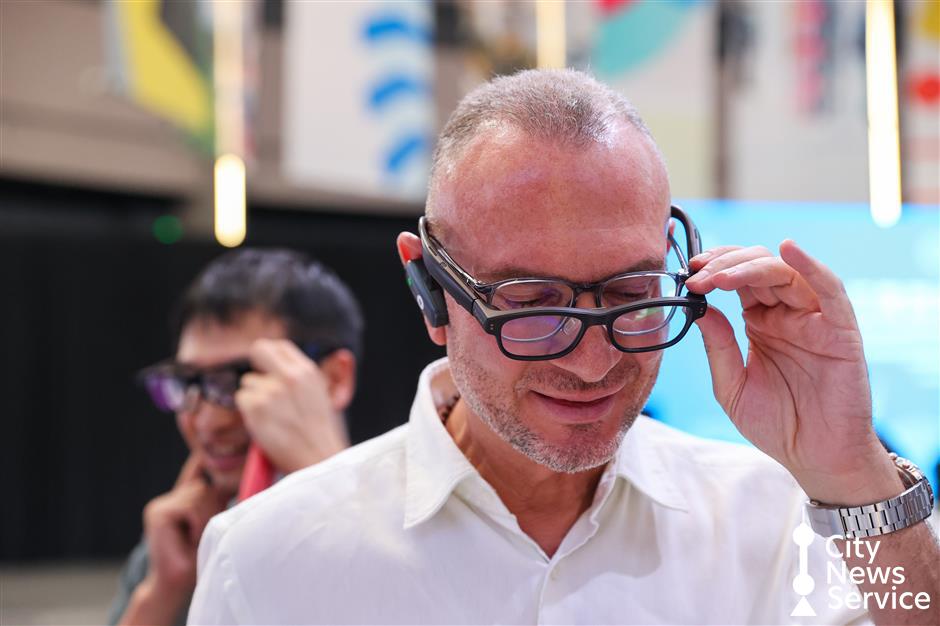
A guest tests AI glasses at the event.
AI poised as Shanghai's economic engine
The city's commitment to AI is already yielding significant economic returns.
Pan Yan, deputy director-general of the Shanghai Commission of Economy and Informatization, announced at the event that Shanghai's AI industry revenue is projected to reach 270 billion yuan (US$37.5 billion) in the second half of the year, representing a 38.1 percent year-on-year growth.
Pan emphasized that this makes AI a "strong economic growth engine" for Shanghai. The city has a long-term AI development blueprint that encompasses building corpus databases, applying AI to vertical industries like manufacturing, finance and health care, and cultivating a robust AI talent pool, Pan told the IBLAC guests.
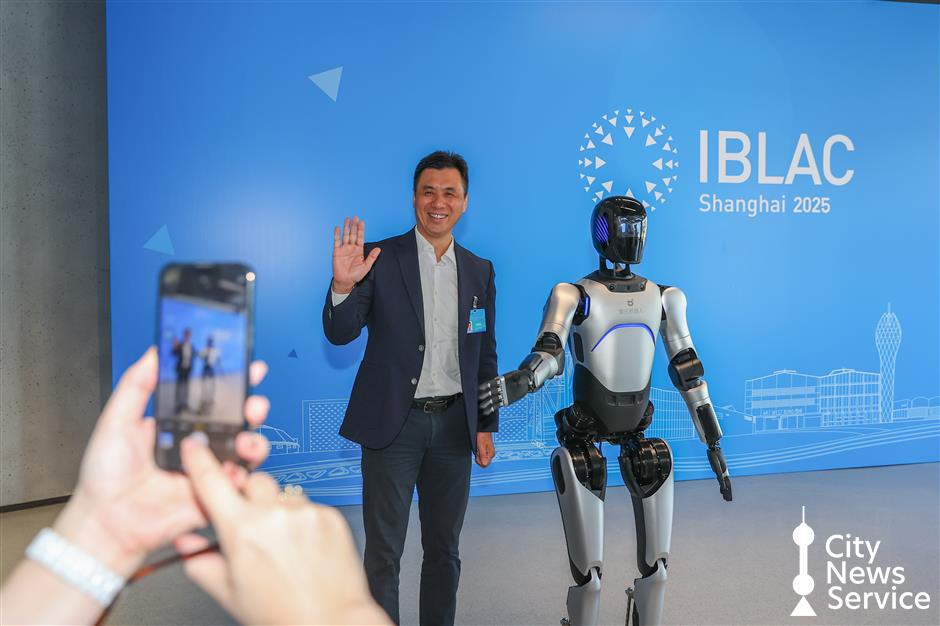
A guest takes a photo with a robot at the entrance.
Source: Shanghai Daily

